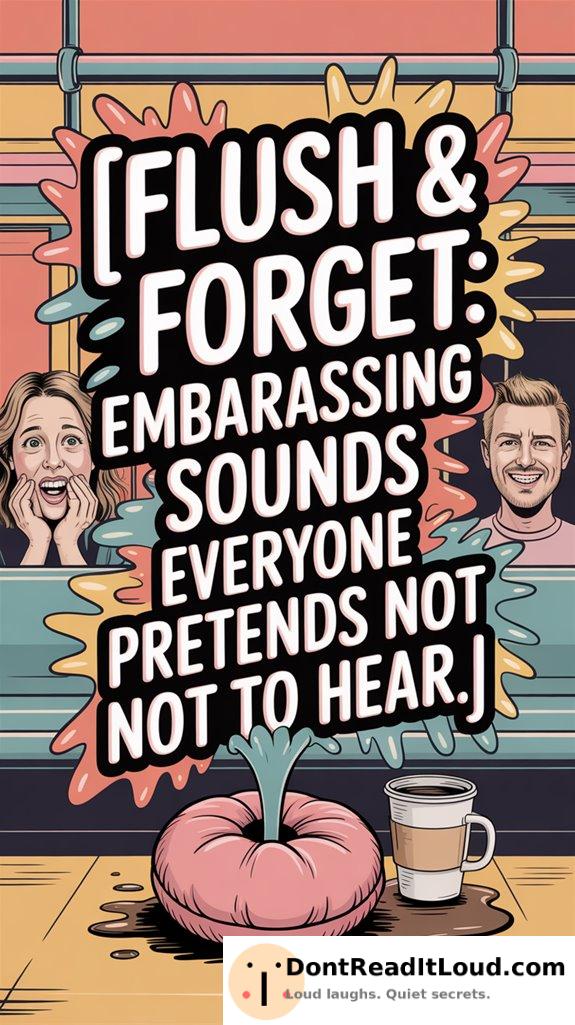
In restrooms, people silently agree to overlook awkward noises, maintaining the illusion of privacy. Not mentioning these sounds helps everyone avoid discomfort, so we might focus on washing our hands or simply look away. Sometimes, humor helps ease the situation and turn embarrassment into laughter. Different cultures handle these moments in unique ways, but the shared understanding persists. Learn more about how we all manage these universal, private experiences.
The Unspoken Social Contract of Restroom Etiquette
When you enter a restroom, a silent agreement comes into play, dictating how everyone should behave. It’s an unspoken social contract where privacy boundaries are respected like sacred rituals. You tiptoe past occupied stalls, pretending you didn’t hear any awkward sounds. Everyone’s in on this charade, ignoring the symphony of coughs, flushes, and mysterious waterworks.
Restroom etiquette relies on shared understanding—even if it means putting on your best act. You might find yourself washing your hands with intense focus, eyes glued to the faucet, avoiding any accidental eye contact that could lead to social discomfort. It’s a delicate dance, really, where you’re both performer and audience, keeping the peace in a small, tiled universe.
Psychological Insights: Why We Choose to Ignore
Understanding the restroom’s silent dance, one might wonder why we instinctively ignore those awkward sounds. It’s not just about saving face; it’s also about avoiding discomfort and fitting in. No one wants to be the person who calls out someone else’s embarrassing moment.
By acting as if nothing happened, you spare both yourself and others from awkwardness. Everyone quietly agrees to maintain the illusion: hear nothing, say nothing. It’s like a secret code where everyone benefits from shared discretion.
The Role of Humor in Navigating Awkward Moments
Though awkward moments in restrooms can be uncomfortable, humor often serves as a reliable tool for diffusing tension. You’ve been there—a sound echoes, and suddenly, the room is awkwardly silent. Instead of letting embarrassment linger, crack a joke. A well-timed quip can lighten the mood and turn discomfort into a shared laugh.
This kind of laughter helps ease embarrassment and can even strengthen social bonds. You might say, “Well, that was unexpected!” or jokingly blame it on the creaky pipes. Humor breaks down barriers and reminds everyone that we’re all human, prone to the same slip-ups.
Cultural Variations in Handling Restroom Sounds
While cultural norms differ greatly around the world, how people manage restroom sounds often reveals underlying attitudes about privacy and embarrassment.
In Japan, for example, toilets often feature a “Sound Princess” button that discreetly covers noises with a gentle flush. This takes privacy to a whole new level.
In Italy, you might hear someone break into song, transforming the restroom into a playful performance.
In contrast, the British tend to respond to awkward sounds with quiet composure, treating the moment as if everyone is sworn to secrecy.
Wherever you are, handling restroom sounds involves a careful balance of manners and lightheartedness.
Conclusion
Navigating restroom etiquette means discreetly overlooking those awkward noises. This helps everyone save face and feel at ease. A little humor can lighten the mood and build connection. Cultural backgrounds may shape responses, but we all aim for mutual comfort. So, next time, just flush and move on—everyone does it.



